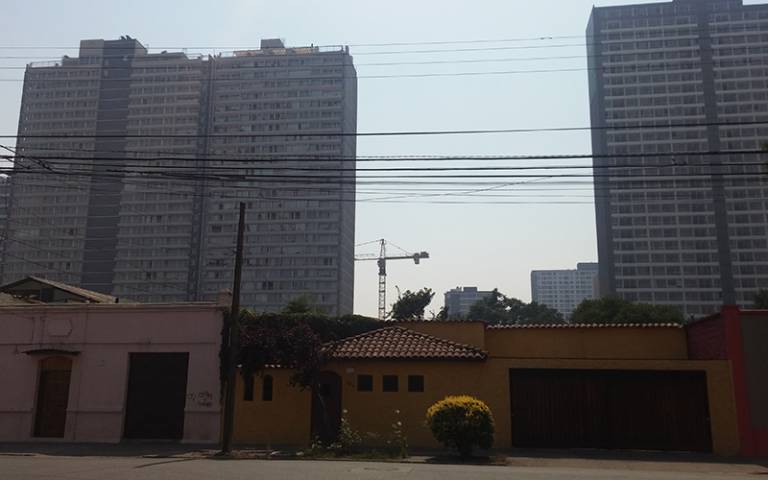DPU PhD candidate successfully defends thesis on the canalisation of planning law in Santiago
27 November 2020
Congratulations to DPU PhD candidate Vicente Burgos Salas who has successfully defended his thesis that reading the co-constitutive relation between law and space in cities such as Santiago can help to uncover the potential for legal instruments to achieve desired urban change.

His thesis explores the role of planning law in urban change in Santiago, Chile. Working from a view of law and space as constituting each other, he examines the interaction between the practices of planning law and their spatial manifestation to analyse how legal instruments canalise urban policy. Cities are subject to legal institutions and procedures that aim to regulate and organise their development. The enforcement of planning law by governments affects the practices of actors in cities. Yet, little is known about the spatial impact of actors’ interpretations, understandings and ways of doing things in the practice of planning law.
His thesis expands on the literature of legal geography and on debates examining the relation between law and the city. To that end, he conducts an exploration of the social practices of law by documenting and comparing the interpretation and enforcement of planning law by public, private and civil actors in the built environment of three local governments in Santiago. The research approach develops an analytical understanding of the meaning of the social practices of law and their constitutive role in the spatial outcomes in the built environment.
The research explores this constitutive relation between law and space by examining primary data collected through qualitative fieldwork, document analysis and quantitative analysis of rulings regarding administrative decisions on planning controversies in Santiago. At the same time, his thesis researches the discourses of law that are mobilized by these actors in the processes of change in the Municipalities of Santiago and in Chilean legal institutions. He analyses his data through discourse analysis, with a focus on actors’ practices, discourses and strategies using planning law and its spatial manifestations in the built environment.
Avoiding seeing law as an abstract concept and a linear process, he contributes to a more comprehensive understanding of planning law, arguing its social practice, in a given time and place, is a key element to unveil its constitutive role in space through the canalisation of the intentions and objectives of different actors. Providing an analysis of how planning law is materialised in the built environment, his research seeks to uncover the relevance of actors’ background understanding of the different actors in planning law. He concludes that formalistic interpretations deeply influence how actors perceive planning law and how they use it for their objectives and presents the built environment as a manifestation of the consequences of a legalistic interpretation of planning law.
 Close
Close

